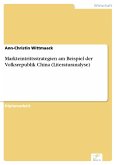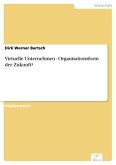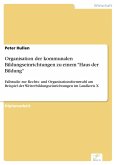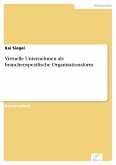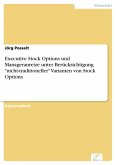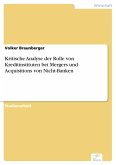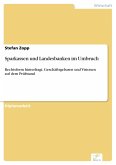Inhaltsangabe:Einleitung: ¿The question,¿Who has to use my output for it to become effective?¿ immediately shows up the importance of people who are not in line of authority, either upward or downward, from and to the individual executive. It underlines what is the reality of a knowledge organization: The effective work is actually done in and by teams of diverse knowledges and skills. These people have to work together voluntarily and according to the logic of the situation and the demands of the task, rather than according to a formal jurisdictional structure¿. Wie das Zitat von Drucker bereits andeutet, scheint das klassische Webersche Organisationsmodell der formal strikt hierarchisch organisierten (zentralisierten) Bürokratie mit ihrem strengen Weisungs- und Kontrollsystem in der Wissensgesellschaft, in der wir uns heute befinden, an ihre Grenzen zu stoßen. So haben sich aufgrund weitgreifender Veränderungen die Anforderungen an die Organisationen und der in ihnen arbeitenden Organisationsmitglieder derart verändert, dass die lange Zeit dominierende hierarchische Koordinationsform den Anspruch als alleinige universelle organisatorische Koordinationsform nicht mehr aufrechterhalten kann. Der globale Wettbewerb, zunehmend verkürzte Produktlebenszyklen, immer spezialisiertere Märkte und insbesondere die Geschwindigkeit technologischer Veränderungen und ihrer kaum noch absehbaren Folgen führten daher in den letzten Jahrzehnten zu einer immer komplexer werdenden Umwelt. Daraus ergeben sich hohe Anforderungen an die Flexibilität von Unternehmen sowie ein kontinuierlich steigender Handlungs- und Innovationsdruck. Vor diesem Hintergrund müssen Organisationen nicht nur fähig sein, flexibel und schnell zu handeln, sondern auch vorhandenes Wissen gewinnbringend umsetzen. ¿In this society, knowledge is the primary resource for individuals and for the economy overall. Land, labour, and capital ¿ the economist¿s traditional factors of production ¿ do not disappear, but they become secondary¿. Entscheidend sind demnach nicht mehr die effiziente Planung und Steuerung alle organisationalen Abläufe, sondern die Herstellung innovativer, auf die spezifischen Wünsche der Kunden zugeschnittene, Produkte und Dienstleistungen. Eine starr hierarchisch aufgebaute Organisation kann diesen Anforderungen nur bedingt nachkommen, da sie sich nicht flexibel und schnell genug anpassen kann. Ihre einstigen Stärken (Größenvorteile, Zuverlässigkeit und Planbarkeit der [...]
Dieser Download kann aus rechtlichen Gründen nur mit Rechnungsadresse in A, B, BG, CY, CZ, D, DK, EW, E, FIN, F, GR, HR, H, IRL, I, LT, L, LR, M, NL, PL, P, R, S, SLO, SK ausgeliefert werden.



